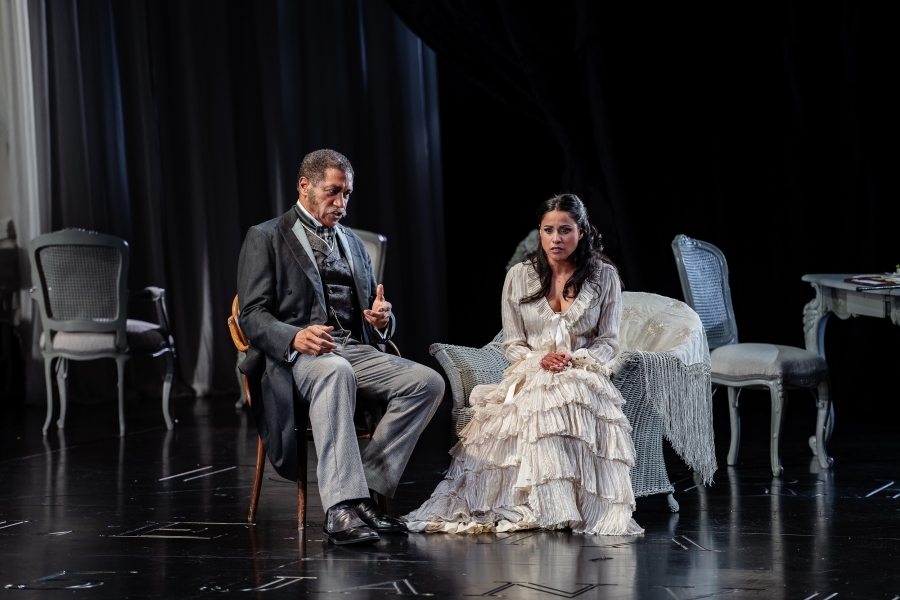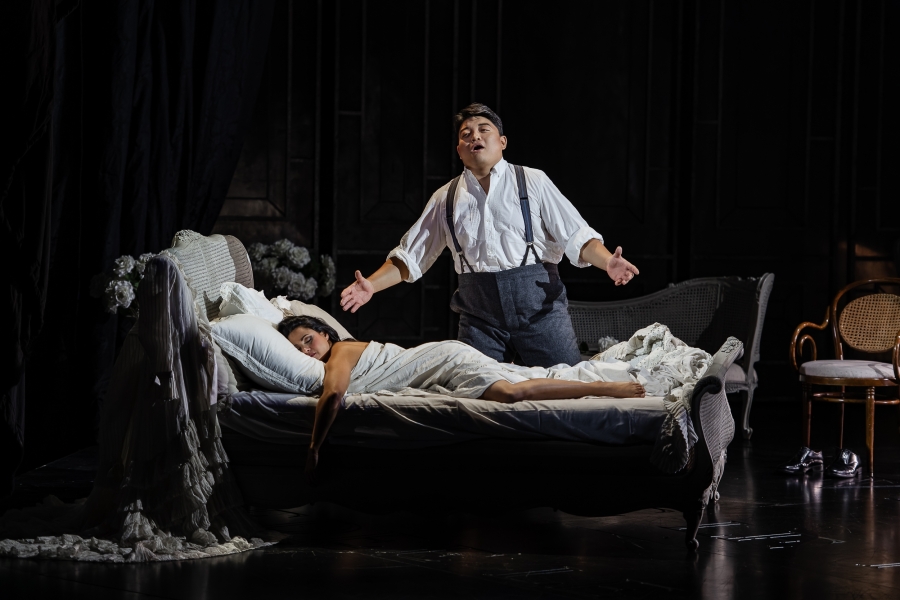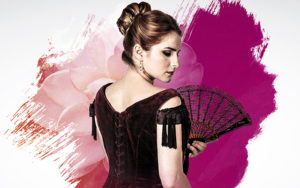A Senbla production of an Ellen Kent Opera featuring the Opera International, Kyiv, Ukraine.
 (4 / 5)
(4 / 5)
On tour nationwide until April
La Traviata, a tale of forbidden love and loss with some hauntingly beautiful melodies. Can a man from a well to do background fall in love with a fallen woman and find acceptance from his family no matter how rich she is?
Ellen Kent’s La Traviata followed a pattern established over recent years. The set was simple, an intricate backdrop that stayed the same for each act, with little, yet effective scenery and an orchestra that played subtly. In effect this drew attention strongly to the stage, the costuming, voices and the acting. As a visual spectacle this show was pleasing to the eye, the costumes suitably opulent and the background evocative of a grand ballroom. The voices were superb but movement on stage was often more pedestrian than animated.
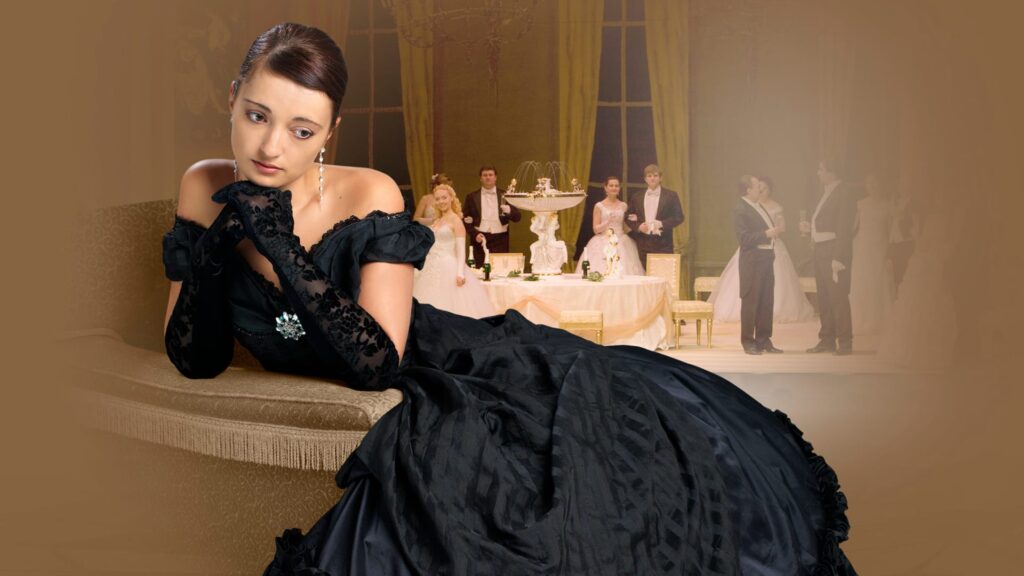
The story, based on a play, the Lady of the Camellias by Alexandre Dumas is a tragedy. Violetta is dying but when she meets a gentleman, Alfredo, they fall passionately in love. His father persuades Violetta to abandon Alfredo to preserve the family’s honour and protect the reputation of a younger sister. However, once Violetta is nearing her end, she is reconciled with Alfredo and the father shows some remorse for causing their rift.
The storyline dictates that the spotlight is very firmly on the soloists and in particular the lead soprano, Violetta, played by Viktoriia Melnyk. Her voice was rich, powerful and striking especially when hitting the top notes. Her duets with Alfredo, played by Hovhannes Andreasyan in Act 1 and with Alfredo’s father, sang by Iurie Gisca in Act 2 are heart warmingly memorable. The large company support the leads well although more could be made of some scenes for example when the Baron challenges Alfredo to a duel. I expected to see much more anger from the Baron.
By modern standards, there are some weaknesses to the plot. The father, despite being told that Violetta is dying asks her to make a huge sacrifice stating that Alfredo will fall out of love with her when her looks disappear in the future. Hardly the most understanding attitude to someone in the last throes of tuberculosis. However, like any story it is a child of its time and attitudes have changed. Of course women today have more personal freedom and their success in life is not defined by achieving a good match. Society is also not as condemnatory towards people with a so called illicit lifestyle. No matter how good a person Violetta was, she could never achieve respectability because she was a courtesan.
This production of La Triaviata is part of the farewell tour for Ellen Kents opera company. It is accompanied by Carmen, also showing at Venue Cymru, and Madame Butterfly. Over the past 30 years, Ellen Kent Opera and Ballet International has established a reputation for producing high quality opera and opening up the genre to a wider audience. La Traviata is a classic opera that lives long in the memory and is therefore a fitting part of this farewell tour and leads to a sense of expectation for the next instalment, Carmen.

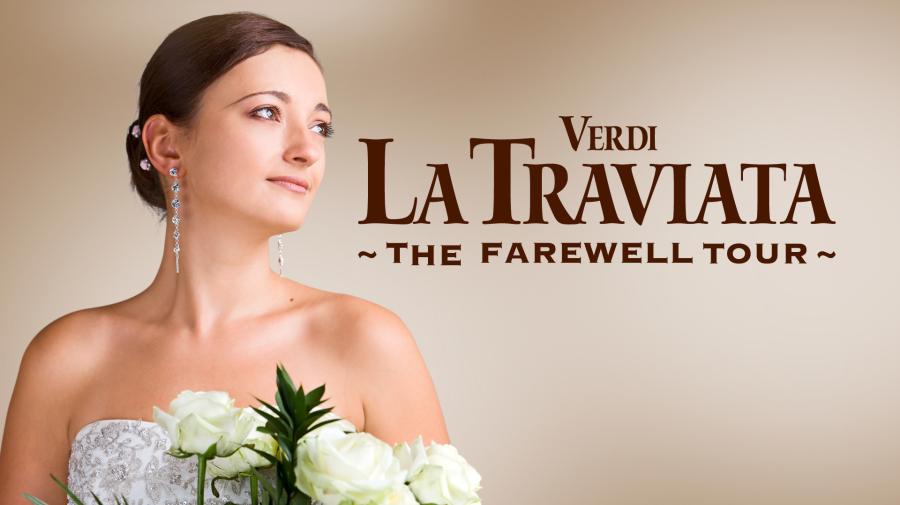
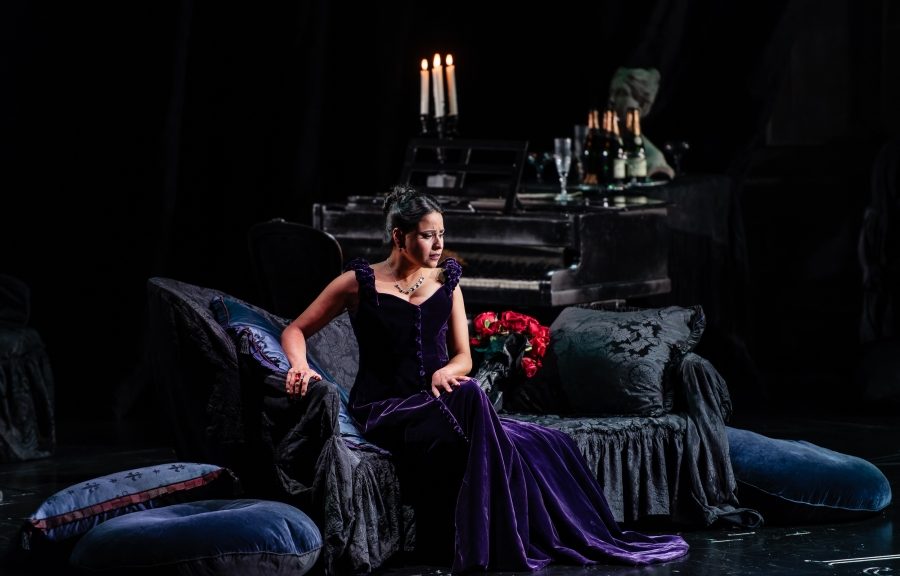
 (3.5 / 5)
(3.5 / 5)